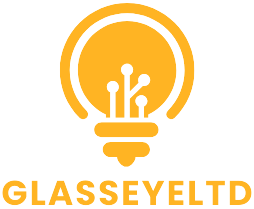Table of Contents
ToggleImagine walking into your home and having it greet you like an enthusiastic puppy. That’s the magic of a smart house. These tech-savvy abodes aren’t just for the Jetsons anymore; they’re becoming a reality for everyday folks. A smart house is all about convenience, efficiency, and a dash of futuristic flair, transforming mundane tasks into effortless experiences.
What Is a Smart House?
A smart house represents an evolution in residential living, integrating technology that simplifies everyday tasks. These homes utilize interconnected devices, enabling seamless communication among appliances, security systems, and lighting. Owners control many functions remotely through smartphones or voice-activated assistants.
Furthermore, smart houses offer energy efficiency. Smart thermostats optimize heating and cooling based on patterns, reducing energy bills significantly. Homeowners also receive real-time data on energy usage, empowering informed decisions about consumption.
Innovative security features enhance safety in smart houses. Cameras, motion sensors, and alarm systems can be monitored remotely, providing peace of mind. Some systems even notify homeowners of unexpected activity, allowing for quick responses.
Convenience plays a crucial role, with devices simplifying daily routines. Smart speakers can play music, provide reminders, or answer queries effortlessly. Lighting systems adjust automatically based on time or occupancy, enhancing both comfort and security.
Entertainment options expand within a smart house. Devices can stream content across different rooms, offering personalized viewing experiences. Multi-room audio systems create immersive atmospheres for gatherings and celebrations.
Efficient landscaping solutions also exist. Smart irrigation systems water lawns based on weather forecasts, conserving resources. These systems prevent overwatering, keeping landscapes vibrant while saving water.
Home automation continues to grow in popularity as technology advances. Smart houses utilize artificial intelligence, learning homeowner preferences to optimize comfort and efficiency. Integrating all aspects creates a cohesive living environment that adapts to individual needs.
Key Features of Smart Houses
Smart houses incorporate various features that enhance comfort, security, and efficiency. Their design focuses on convenience, making daily activities easier.
Home Automation
Home automation encompasses the control of various household functions through interconnected devices. Smart thermostats adjust temperature settings intelligently, providing optimal comfort. Devices like smart lights enable users to customize brightness and color remotely or through voice commands. Security systems integrate seamlessly, allowing real-time monitoring of cameras and alarms from smartphones. Smart speakers also control multiple devices, playing music or setting reminders as needed. With automated systems, households operate more smoothly, responding to user preferences and needs in real time.
Energy Efficiency
Energy efficiency represents a critical advantage of smart houses. Smart thermostats learn patterns to adjust heating and cooling schedules automatically, which can reduce energy consumption by up to 15%. Intelligent lighting systems, equipped with motion sensors, minimize energy waste by activating only when someone is present. Smart appliances also optimize energy usage, utilizing less power during peak times. Additionally, real-time energy usage data helps homeowners identify and manage consumption effectively. By promoting sustainability, these features contribute to lower energy bills and a reduced environmental impact.
Benefits of Living in a Smart House
Smart houses offer numerous advantages that improve daily living. Integrating technology enhances many aspects of home life, making routines easier and more efficient.
Convenience and Comfort
Smart houses provide remarkable convenience through automation. Homeowners manage lighting, temperature, and security with a single device. Voice assistants simplify everyday tasks like setting reminders or controlling appliances. Customization options enable users to adjust environments quickly, matching their preferences. With just a tap or voice command, individuals create the perfect ambiance for any occasion. Smart appliances streamline chores, whether doing laundry or cooking meals, allowing more time for leisure activities. These innovative features contribute to an overall sense of comfort in the living space, enhancing happiness and well-being.
Enhanced Security
Smart houses significantly improve security for homeowners. Advanced surveillance systems allow individuals to monitor property in real-time via smartphones or cameras. Motion detectors alert residents to unusual activity, providing peace of mind. Homeowners receive immediate notifications, ensuring swift responses to potential threats. Integration of smart locks offers keyless entry, adding convenience and safety. Security systems can be tailored to individual preferences, enhancing their effectiveness. Automated lighting simulates presence when owners are away, deterring intruders. This comprehensive approach to security helps ensure safety and promises a more secure living environment.
Challenges and Considerations
Smart houses offer numerous advantages, yet challenges arise in their adoption. Homeowners must navigate aspects like costs and privacy.
Cost Implications
Initial investments for smart home technology can be significant, with estimates often reaching thousands of dollars. Purchasing smart devices, installation services, and ongoing subscription fees contribute to these high upfront costs. Budget-conscious individuals may find it difficult to justify this expense, especially without immediate returns. However, long-term savings on energy bills and maintenance can offset some initial outlays. An average smart thermostat can reduce heating and cooling expenses by up to 10-12 percent, assisting in cost recovery over time.
Privacy Concerns
Privacy remains a primary concern for many potential smart house owners. Devices connected to the internet can unintentionally provide access to personal data, making homeowners vulnerable to breaches. Reports indicate that unauthorized access to security cameras and other smart devices has occurred, raising alarms within communities. Manufacturers often emphasize data protection, implementing encryption methods. However, ensuring privacy requires users to follow best practices, such as regularly updating firmware and adjusting privacy settings. Understanding these risks can help homeowners make informed decisions about adopting smart technology.
Smart houses are transforming the way people live by merging technology with everyday tasks. They bring convenience and efficiency right to homeowners’ fingertips, allowing for a more enjoyable lifestyle. As these innovations become more accessible, the benefits of smart living—like enhanced security and energy savings—are hard to overlook.
While challenges like initial costs and privacy concerns exist, the long-term advantages often outweigh these hurdles. Embracing a smart house can lead to a more streamlined, comfortable, and secure home environment. As technology continues to evolve, the potential for smart houses to enhance quality of life will only grow, making them an increasingly appealing option for modern living.




